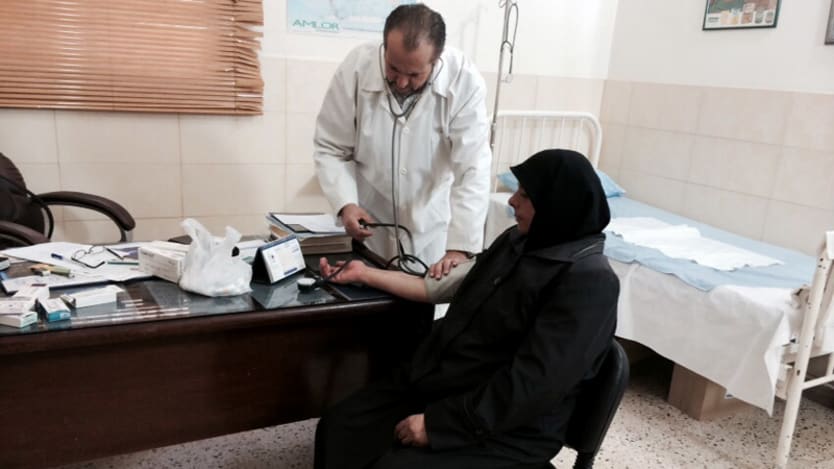
While Ebola, Zika and malaria often occupy current headlines, deaths from noncommunicable diseases are rising rapidly, especially in developing countries with few resources and minimal experience to deliver an effective public health response. Low- and middle-income countries share 86 percent of the world’s burden of NCDs, and the World Health Organization projects that by 2030, NCDs will be the number one killer in LMICs.
Strategic health systems research can help us anticipate and respond to the burden of all NCDs in LMICs, with interventions designed and delivered for maximum benefit in these settings. An important focus of the Fourth Global Symposium on Health Systems Research ramping up in Vancouver this week will be on how to reshape health systems to tackle this rapidly growing burden, especially in resource-poor settings that are already overburdened by communicable diseases.
The Global Monitoring Framework emphasizes strong national health systems responses that can help guide nations in their approach to tackling global mortality from cardiovascular disease, chronic lung disease, cancer and diabetes.
In LMICs where poverty and unmet health needs converge in resistance to an array of health improvement efforts, health systems remain fragile. A health systems approach that examines and respects the intricate web of societal structures, cultural influences, environment, politics and behavior can help today’s health practitioners and ministries of health lessen the toll NCDs take on their countries.
Health systems researchers look beyond the doctor-patient relationship to find, describe and measure resources available in communities, families, markets and governments to improve the quality and impact of health services, especially for the poor, vulnerable and disadvantaged. Communities can also achieve more equitable and efficient health systems and improve the well-being of their citizens by implementing evidence-based health systems strategies.
Take diabetes as an example. It is not usually the first health issue that comes to mind when we think about solving health care problems in the poorest nations, yet it is now one of the most common NCDs globally. The WHO estimated in the global report on diabetes that more than 420 million adults were living with the disease in 2014, an almost fourfold increase in just 34 years. Diabetes kills — in fact, the WHO reports it caused 1.5 million deaths. And when it does not kill, diabetes can lead to a spectrum of serious health problems: blindness, heart disease, kidney failure, stroke and amputation, and in turn, these require a number of resources to mitigate, support and care for them.
Preventing new cases of diabetes will require effective, locally meaningful interventions to reduce known risk factors such as tobacco and alcohol use, physical inactivity and unhealthy diets. Screening for Type 2 diabetes can identify people who have it in its early stages and give them tools to manage their disease.
For the hundreds of millions of people who already have it, diabetes cannot be cured but must be managed to avoid its disabling complications. Self-management is an unending responsibility that can be physically and emotionally exhausting and often requires costly medicines and blood sugar monitoring equipment. Systems thinking approaches and use of innovative health technologies to lessen the burden of diabetes hold great promise in decreasing the number of new cases and increasing the success of self-management tools, practices and supports to improve life expectancy and quality of life.
Health systems can use innovative health technology to gather data in order to tackle NCDs, especially since early deaths from diabetes and other chronic conditions are preventable. Mobile health technology leverages digital health technology to target risk behaviors. With much of the world having access to mobile phones, community health workers can also use text messaging to send reminders about appointments and self-management tips.
A case in point, researchers at Johns Hopkins Bloomberg School of Public Health and partners are currently evaluating the viability of mobile phone surveys as a tool for gathering NCD risk factor information in several LMICs supported by Bloomberg Philanthropies. This should go some way to inform not only the use of mobile phones in addressing NCDs through health systems, but to understand the evolving nature of our communities and shape the choices we make in preventing and supporting ill health.
The daunting burden of NCDs and other global health challenges. cannot be lightened by innovative technology. We need political will and commitment to implement and ensure equitable access to these innovations. There needs to be a deep understanding of the social factors that shape personal and public health to create sustainable, resilient and community-oriented solutions. In essence, we need health systems research to do this.
Making Markets Work is an online conversation to explore what’s being done to make global health care markets accessible to people at the base of the pyramid. Over 10 weeks, we will amplify the discussion around effective health financing, analyze key challenges blocking universal market access in the health care supply chain, and explore the key strategies to make markets more effective. Join us as we look at this important issue, and share your thoughts by tagging #MakingMarketsWork and @Devex.








